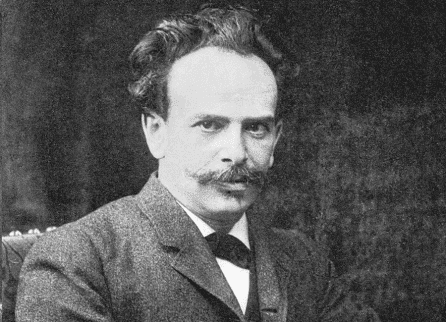Franz Boas (1858–1942) was a German-born anthropologist who founded the first university department of anthropology in North America, particularly at Clark University, in 1888.
In addition, it was he who established a more scientific way of studying anthropology, through the obligation to do fieldwork in depth.
- We will discover the circumstances that led Franz Boas to create this new and pure scientific discipline to follow.
- We will also delve into the social and personal circumstances that led this scientist to study this field of science.
Like many anthropologists of the time, Boas was born and educated in Germany. He began his training at the age of 20. He studied physics and mathematics, earning a doctorate in geography in 1881. His thesis was titled “Contributions to Understanding the Color of Water.
In 1983 he made an expedition to the Arctic Sea to study the color of its waters, where he spent a year living with Eskimos and whalers.
Thus he discovered ethnography, the method of direct observation to study social phenomena and the importance of understanding the context around it.
Boas’ close relationship with the Arctic Eskimos developed an interest in anthropology, focusing mainly on field research in all its fields: linguistic, social and cultural, a fact that led him to understand from a very young age that language and culture play a more important role. role in societies than conditions.
When he completed his expedition he returned to Berlin, but years later returned to North America to begin teaching at Clark University.
By 1889 he was a professor at Columbia University, a position he held for the rest of his life, as well as curator of the American Museum of National History in the ethnology session.
Franz Boas’ contributions to anthropology are numerous and difficult to summarize; however, it can be said that he contributed to all aspects of the establishment of anthropology as science, working as a teacher, researcher, administrator and founder of institutions.
He has written a large number of books and scientific articles, covering all fields of anthropology. His publications include linguistics, ethnological theory, anthropology, folklore, racial issues, civil rights and various other topics.
The boas were at the center of major events that marked a before and after in American anthropology.
He participated in the modernization of the American anthropologist (1889) and the founding of the Association of American Anthropologists (1900) and the American Folklore Society (1888), as well as in the revitalization of the American Ethnological Society (1900).
In addition, in 1910 he actively participated in the creation of the American International School of Archaeology and Ethnology in Mexico, serving as director of the institution between 1911 and 1912.
One of Franz Boas’s most important theoretical contributions to anthropology was a new look at the study of culture, renouncing the imperative thought of the time on socio-linear evolution: instead, he proposed a relativistic look at cultural differences.
This has led anthropologists to focus more on the peculiarities of each society rather than comparing cultures to make speculative generalizations.
Another of Franz Boas’ great contributions to anthropology was his disciples. Boas and his followers laid the foundations for a professional and academic anthropology characterized by the expulsion of amateurs.
In fact, it has been possible to make ethnographic research in the field the most important element of anthropological professionalization.
Among his most famous disciples are: Ruth Benedict, Margaret Mead, Alfred Kroeber, Robert Lewie, Edward Sapir, among others, all dedicated to the dispersal of anthropology throughout North America.
Kroeber and Lewie went to teach at 0. 09. Sapir in Chicago, while Mead and Benedict remained at Columbia University.
In 1911, Boas published the book The Mentality of Primitive Man, a text that can be considered one of the most important in his prolific scientific production.
In its pages, Boas tries to clarify the relationship between culture and race and concludes that there is no direct and effective scientific relationship between them, so it denies the existence of inferior and higher races.
Therefore, we cannot speak of primitive or civilized according to the phenotype that characterizes a society.
Boas maintained and defended this theoretical position throughout his life. In 1931 he published an article in German reaffirming that culture had nothing to do with race, as proposed by some ultranationalists.
The publication took place a year before Hitler’s reign in Germany, prompting his works to be publicly burned in Kiel.

